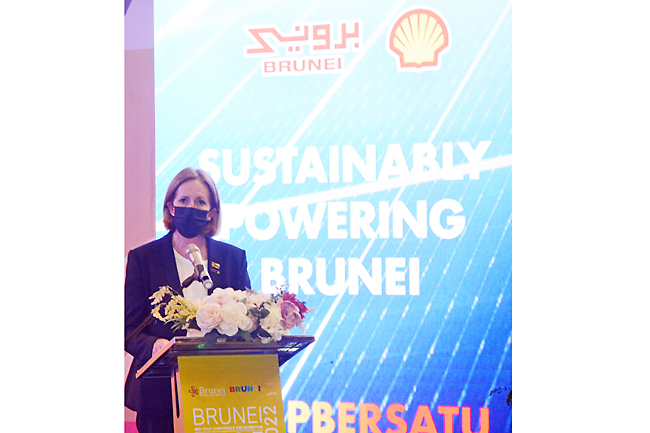Hakim Hayat
Brunei Shell Petroleum Company Sdn Bhd (BSP) unveiled the System Value Analysis (SVA) of Brunei yesterday, as part of the programme for Energy Week of the Brunei Mid-Year Conference and Exhibition (Brunei MYCE 2022) at the International Convention Centre (ICC) in Berakas.
Permanent Secretary of the Department of Energy at the Prime Minister’s Office Haji Azhar bin Haji Yahya was the guest of honour.
Also present were BSP Managing Director and Shell Country Chair Agnete Johnsgaard-Lewis, Executive Committee members of the Brunei Climate Change Secretariat, academias and representatives from the private sectors.
BSP in a press statement said it is proud to initiate the SVA study for Brunei together with Accenture, with the support from various departments from the government, through peer reviews and sharing of expertise and data. Within the ASEAN region, the SVA has been conducted for Malaysia, Indonesia and most recently Thailand.
“The transition to a low carbon economy requires investment, innovation and unprecedented collaboration from the industry, the Brunei Government, policymakers and the community.


“How we value the energy system is at the heart of that change – the path to an integrated zero-carbon energy system needs to take into account not only cost, but also system value.
“Traditionally, cost has been a key driver for decision-making when deploying low carbon technologies or initiatives. However, to accelerate actions in Brunei’s journey towards a net zero future, a new lens is needed for decision making – one which identifies the broad range of benefits, outcomes and in-country value as a result of the energy transition.
“Shifting commercial focus beyond cost to include value, the System Value is the new lens for decision-making and is a holistic framework that evaluates economic, environmental, social, and technical outcomes of potential energy solutions.”
BSP added that the potential solutions identified for Brunei include the deployment of distributed solar; leverage Brunei’s floating solar potential for grid connected capacity and green hydrogen production; Carbon Capture, and Storage (CCS) to decarbonise industries, both domestically and internationally and scale up electric vehicles (EV) and boost public transportation.
These identified priority areas, BSP said, can then be used as baselines for dialogues to drive alignment and decisions between private and public stakeholders and conducive policy creation towards Brunei’s net-zero ambitions.
“The speed of the transition to a low carbon future will crucially depend on actions taken to put in place the broad range of policies necessary to drive and accelerate changes.”
BSP Head of Energy Transition Shirley Sikun said, “Accelerating Brunei’s ambitions towards net-zero requires collaboration across all sectors and institutions. When the SVA is published on the World Economic Forum website, I encourage companies and members of the public to take the time to review the study and ask themselves: ‘How can we contribute towards a sustainable Brunei?’.
Real change can happen when we keep asking questions and engage in a thoughtful dialogue.”



















































